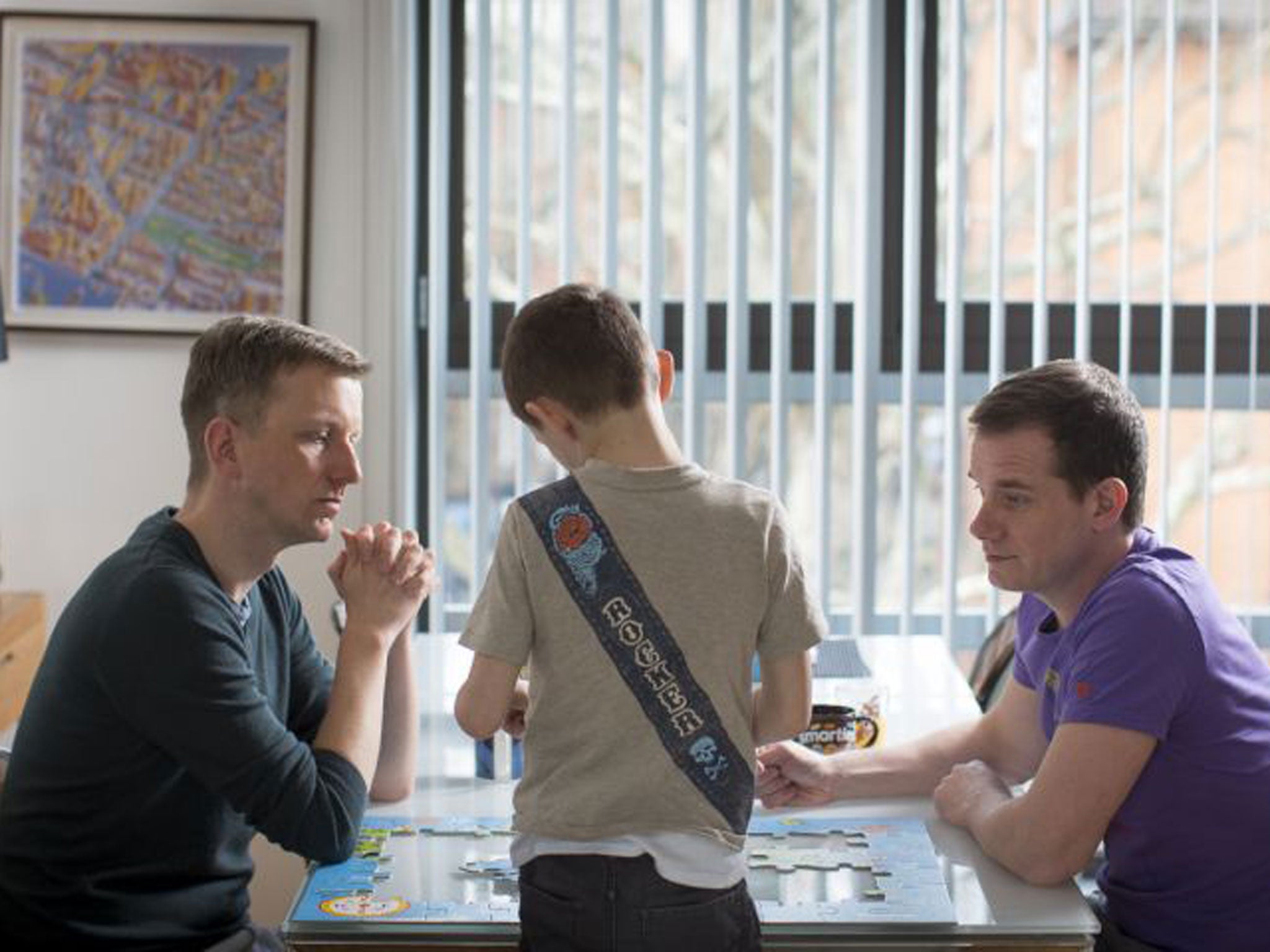All prospective parents should consider adoption - but especially gay people
A study from the University of Cambridge's Centre for Family Research has confirmed that children in gay adoptions are at no disadvantage

When my brother tactfully announced I was "never going to be a mother" the other day, I wasn’t really fussed. I am 29, straight and fertile (I think), my main worries centre round happiness in work and the fact my first house is not on the horizon.
Luckily, I also have a get of jail free card - ever since I was little, I knew I wanted to look after the babies without parents of their own. My mum was adopted and reiterated time and again how she felt good about being "specially chosen".
But when I talk about my urge to adopt and my absent desire to give birth, people promptly reassure me I will feel the animalistic need to procreate soon. With apparent impending doom and possible barren womb, what options are open to my jilted generation, who are nearing 30, or just over the hump?
Infertility is not a myth; fertility decreases in your thirties and by the age of 40, only around 40 per cent of women will be able to have a baby. It is also known the later in life a woman conceives, the chance of miscarriage and babies born with problems increase. At 25, the chances of having a baby with Down’s Syndrome is 1 in 1300, at 35, 1 in 350.
And it is not just the women. Quality of sperm decreases with age and every year a man ignores fatherhood, he is likely to pass on two more DNA mutations causing developmental and psychological problems, including autism and schizophrenia.
The IVF alternative is clearly not a wonder wand and the ongoing intrusive process can be extremely emotionally stressful. In 2010, 32.2 per cent of IVF patients under 35 conceived. For 38 – 39 year olds, success was 20.8 per cent. At 42 years of age, success rates plummet to 13.6 per cent.
Accessing IVF on the NHS isn’t easy. Recently updated guidelines from the National Institute for Clinical Excellence (NICE) recommend raising the upper age limit for IVF from 39 to 42, but these are just recommendations. Ultimately it's the post code lottery-loving Primary Care Trusts - with the money - who get to play God.
Unless tests show it is the only way you can conceive, it can take three years for a couple to be referred for three cycles. And in the case of lesbian couples, there is a clause, upheld by some PCTs, which withholds funding if a sperm donor is required.
I balk at the thought of £3,000 being spent on each cycle of treatment, when there is a shortage of around 9,000 foster homes and 4,000 adoptive families, and some areas where cancer patients are queuing up for treatment. I feel for those desperate to preserve their lineage but I urge everyone, especially LGBT couples with or without ovaries, to look at the alternatives.
Some prospective parents fear that mostly babies are adopted and the surplus is older, damaged children, so traumatised that a happy family life is unattainable. In fact, only 2 per cent of adopted children are under a year old, (74 per cent are aged between 1 and 4), but its undeniably true that most have had the worst start to life; almost three quarters of children waiting to be adopted have experienced abuse and neglect. It really takes special people to take this on – could that be you?
The charities New Family Social and Action for Children have teamed up to designate this week LGBT Adoption and Fostering Week. They suggest that if 2 per cent of LGBT couples came forward to adopt, the demand for families would end.
While Tory MP David Jones may believe gay couples "clearly" could not provide a "warm and safe environment for the upbringing of children", the evidence paints a very different picture. The nuclear family has been nuked, with reports suggesting just over half of 14-year-olds live with both their biological parents. Meanwhile, since 2005, same sex couples have been able to adopt and now count for 1 in 20 adoptions. Cambridge University this week revealed positive results from the first study into the outcomes of children with same-sex adoptive parents, highlighting offspring were likely to prosper just as well as in a ‘traditional family’.
While the likes of David Jones won't go away any time soon, there is also evidence that attitudes to gay parenting are changing. New Family Social reports 91 per cent of its members were satisfied with their agency’s attitude towards their sexuality and the average time taken to adopt had almost halved, to just over three years.
A spokesperson from charity Action for Children, backs the fervour and candidacy of LGBT people who adopt, saying they often choose adoption or fostering “as the first choice for expanding their family, bringing love, real enthusiasm and resourcefulness”.
For prospective LGBT parents, adoption has an added advantage over IVF; it provides a bond on an equal basis for both parents, as there is no biological link with just one parent.
With so many frantic for a family and multitudes of children needing a home, it's time that all prospective parents - gay or straight - start thinking about the possibility of opening their hearts to those who have had the worst of starts in life. My grandmother did it, maybe you could too.
For further information on adoption and fostering, visit www.baaf.org.uk For details of LGBT Adoption & Fostering Week, visit www.lgbtadoptfosterweek.org.uk www.newfamilysocial.org.uk
Join our commenting forum
Join thought-provoking conversations, follow other Independent readers and see their replies
Comments
Bookmark popover
Removed from bookmarks